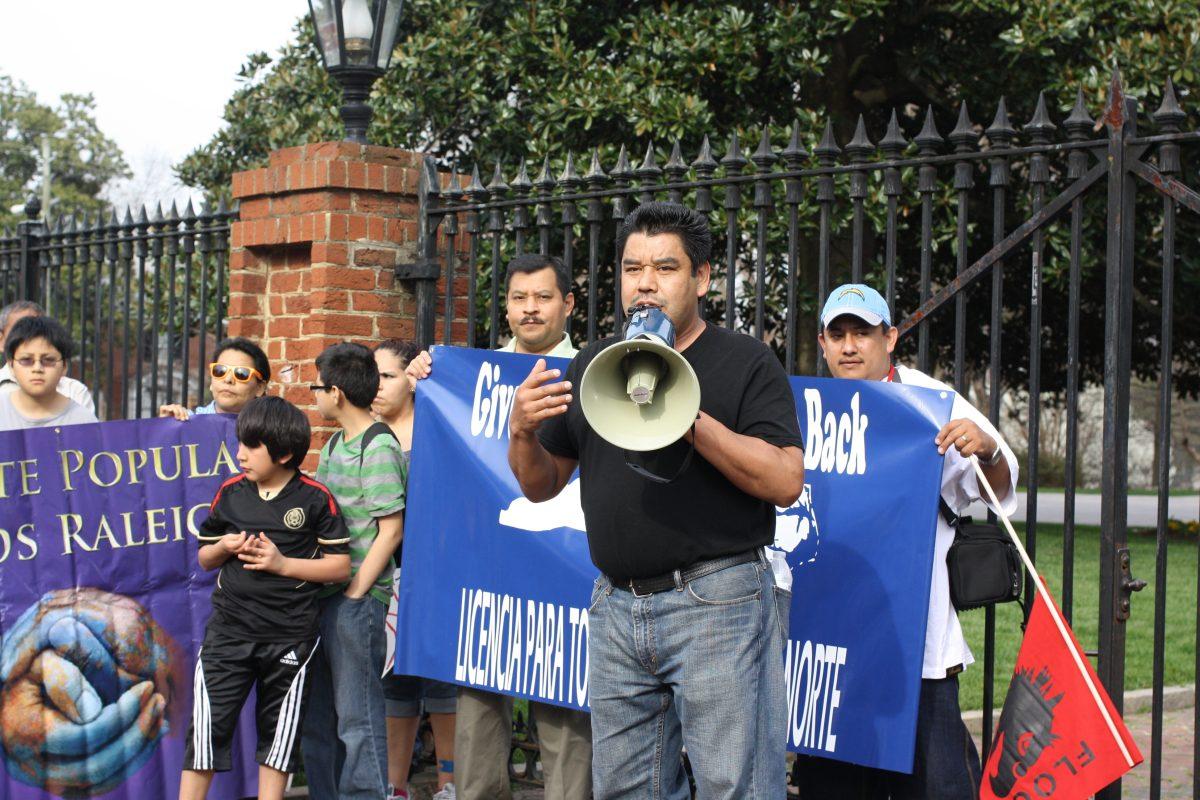Protesters shouted “Que queremos? Licenias! Cuando? Ahora,” which translates to “What do we want? Licenses! When? Now,” as they walked through downtown Raleigh on Saturday in support of driver’s licenses for immigrants of undocumented status.
Advocates organized the march in response to HB786, or RECLAIM N.C. Act, an immigration enforcement policy that will require people who enter the country illegally to register for driving privileges and increase penalties for those who don’t qualify.
Some protesters held red flags to show support from the Farm Labor Organizing Committee, a group that works with Fuerza y Libertad (Strength and Liberty) for immigration reform and support for workers in the agricultural industry.
Sergio Sánchez, one of the organizers of the event, said the purpose of the march was to ask for immigration reform and driver’s licenses for all people who enter the country illegally.
The participants had a police escort as they crossed the downtown area beginning at the Bank of America and making stops at the Wells Fargo building, the Governor’s mansion and the legislative building.
According to Sánchez, the march made stops at the banks to pressure them and show that their customers who entered the country illegally have an economic presence in the state and are asking for their help to achieve immigration reform.
The Supervising Legislative Committee of Justice and Public Safety of the General Assembly will examine the measure in early April.
To qualify for a permit, one must admit to being in the country without permission, submit fingerprints and pass a criminal background check, prove that one was living in North Carolina as of April 1, 2013, and prove North Carolina residency for at least one year, according to the North Carolina Justice Center.
For migrant farm workers who work in North Carolina but don’t keep a permanent residence here year-round, HB786 would make it impossible to obtain a driver’s license.
The U.S. Department of Labor reported in 2005 that 53 percent of farmworkers in the United States are working without legal authorization. North Carolina ranks sixth in the nation in the number of migrant farmworkers.
Leslie Stevens, who works for the Association for State Workers of North Carolina and is a former highway patrol officer, spoke in support of immigration reform. He said the law needs to be changed so that people could go to work and provide for their families.
“It would make it a whole lot safer for us, for law enforcement, if you did have a driver’s license because you have to go through the training to have [one],” Stevens said. To get a driver’s license in North Carolina, you have to take a reading test, an eye examination and a driving test, in addition to establishing your legal residence in the U.S.”
A recent study by the N.C. Department of Public Safety suggested that issuing permits to people who immigrated illegally should lead to safer roads for all North Carolinians, though there is no statistical information to support their findings.
Participants who spoke in front of the crowd said that they want to apply for a driver’s license so that they don’t fear being pulled over while taking their children to school or doctor’s appointments, or while going to work.
“People should wake up,” Sanchéz said. “We need to come together to be stronger. It’s necessary to keep working so that this work doesn’t die and achieve the objective: driver’s licenses for all.”








